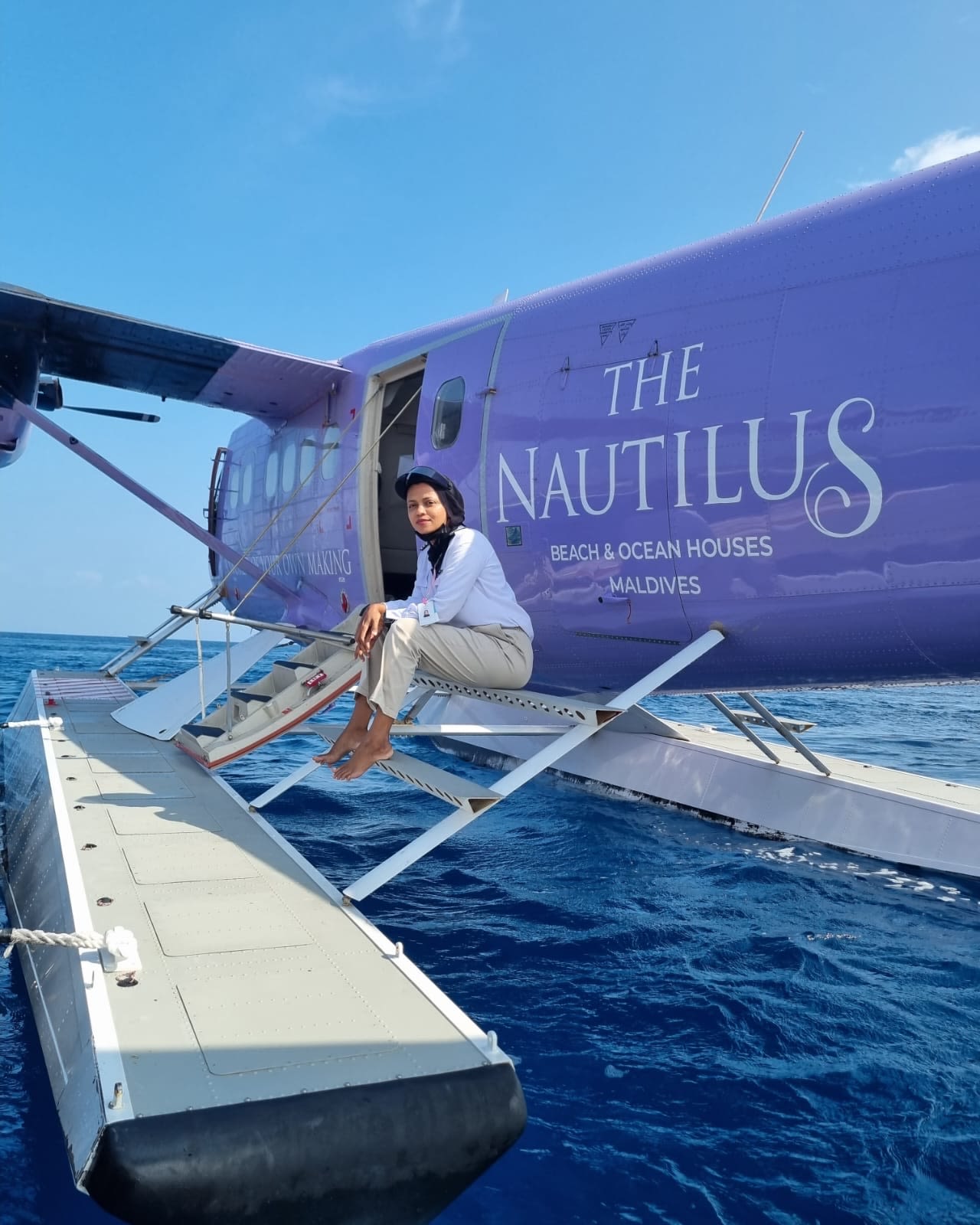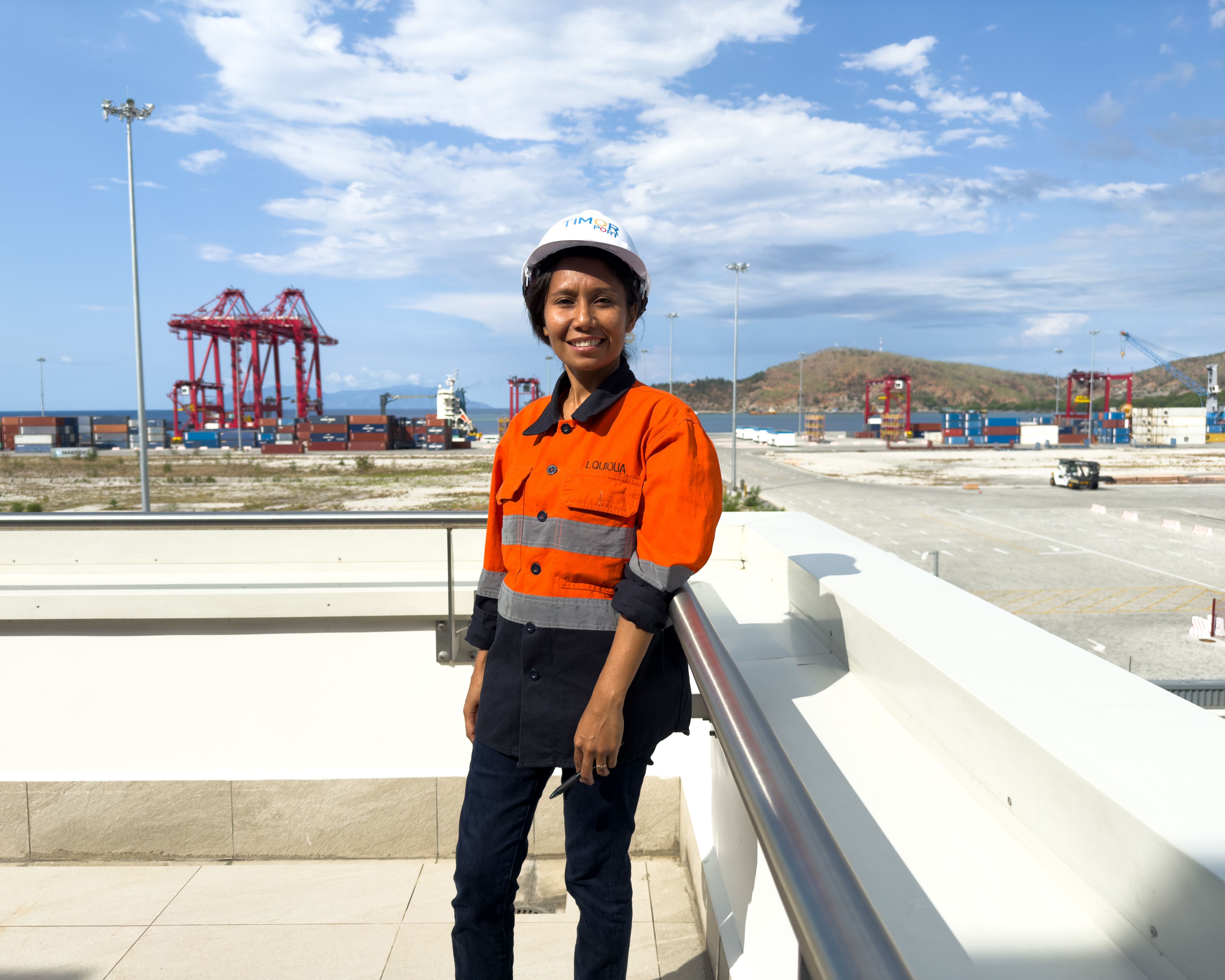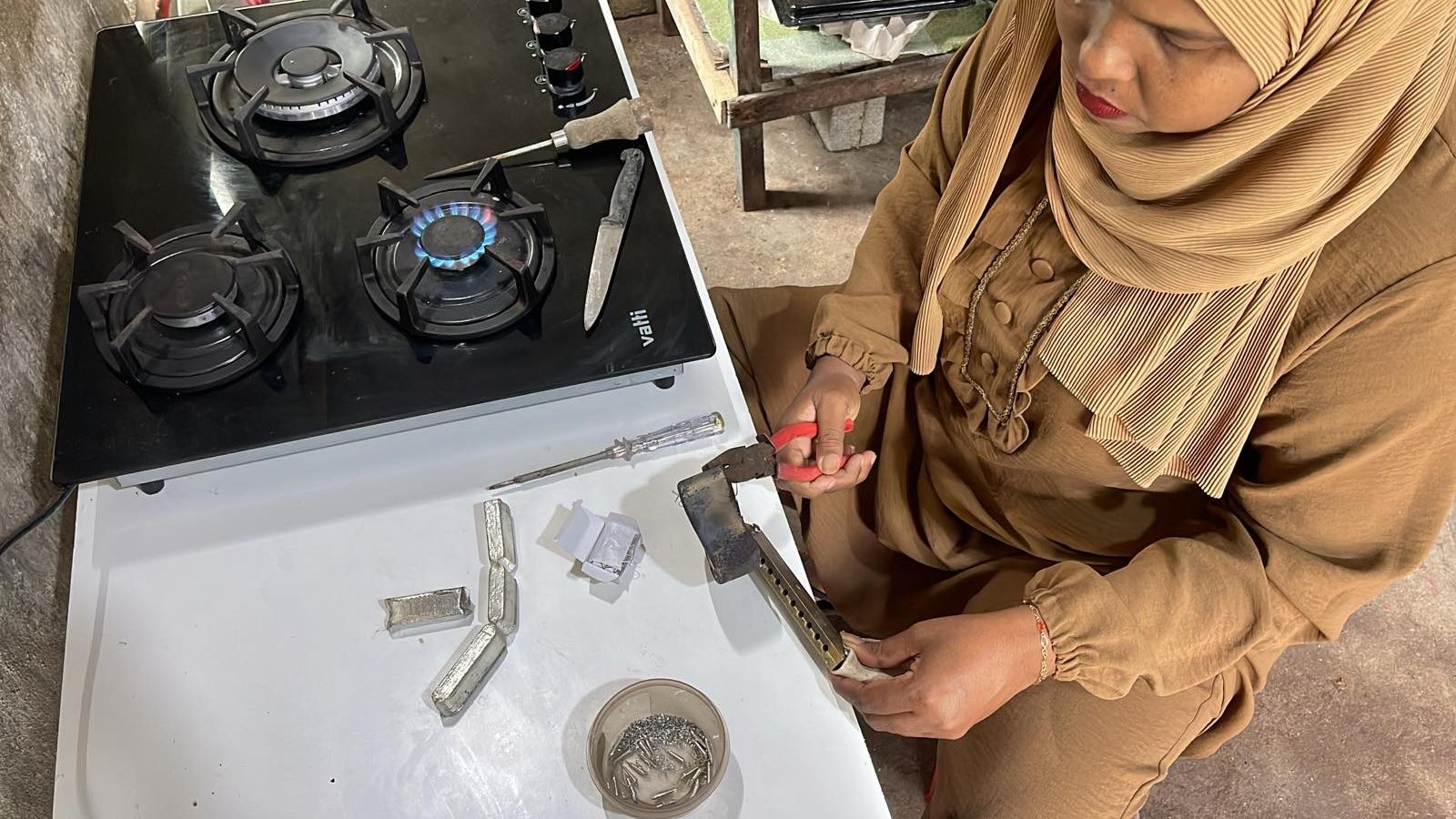Strong Women, Strong Nation – Redefining Women’s Roles in Maldives and Timor-Leste
Building Legacies, from One Island Nation to Another

For Fathimath Nathasha Latheef, the sky is the limit. When she was younger, Latheef was not sure if she could ever become a pilot: “The idea of a female pilot was foreign to me because I never thought it could be possible,” she says. Today, Latheef is the Maldives' first female pilot to fly a commercial aircraft, the Airbus A320 – a remarkable feat in her 20-year aviation career.
Her professional journey was not straightforward. “There was always the question of whether a female can handle both the family and the aircraft. It was not something that my male counterparts were subjected to,” says Latheef, who now also serves as a Flight Operations Inspector. In a country where only 43 percent of women are actively employed, and mostly in informal sectors, Latheef is a trailblazer in an industry that is traditionally dominated by men.
Going against the grain can also boost earnings: according to the World Bank, globally, women who enter male-dominated sectors earn 67 percent higher salaries on average than women who remain in traditionally female-concentrated sectors.
Photo by Fathimath Nathasha Latheef/IFC
Photo by Fathimath Nathasha Latheef/IFC
Photo by Fathimath Nathasha Latheef/IFC
Photo by Fathimath Nathasha Latheef/IFC
Building Legacies, from One Island Nation to Another

On the other side of the Indian Ocean, Ligia Quiolia de Jesus B. Ferreira is on a unique journey of her own in Timor-Leste. She started her career as a civil engineer in 2016 and, like Latheef, is working in a traditionally male-dominated profession: the country’s infrastructure sector.
Ferreira played a crucial role in developing critical projects, including the Dili-Ainaro road, a 110-kilometer road corridor that connected the north and the south of the country, and the Tibar Bay Port, a state-of-the-art facility and Timor-Leste’s first public-private partnership (PPP), located on the outskirts of the capital, Dili.
Reflecting on her journey, Ferreira, who now serves as a civil engineering supervisor at Timor Port S.A., leading the infrastructure department in the preventive and repair maintenance of port facilities, says, "Working in a male-dominated industry like infrastructure is never easy. The path is filled with challenges, but when you look back and see how far you have come, the sense of accomplishment and pride is incomparable."
While the female labor force participation rate in Timor-Leste is 61 percent – higher than the average rate of 58.6 percent in East Asia Pacific – according to the International Labor Organization, women in the country are more likely to be self-employed and less likely to have wage-earning jobs compared to men. They also own fewer businesses and comprise just 22 percent of senior and middle management roles.
Photo by Ligia Quiolia de Jesus B. Ferreira
Photo by Ligia Quiolia de Jesus B. Ferreira
Photo by Ligia Quiolia de Jesus B. Ferreira
Photo by Ligia Quiolia de Jesus B. Ferreira
“Feto Forte, Nação Forte” (Strong Women, Strong Nation)

In countries across Asia Pacific, enhancing women’s economic participation benefits countries and communities. Claricia Lay from Timor-Leste and Zahiyya Mohamed from Maldives are prime examples.
Over three decades ago, Lay began her entrepreneurial journey when she established Jacinto Supermarket, which quickly became a trusted household name in Timor-Leste. Building on this success, she launched Jacinto Department Store in 2008, creating a multi-level retail experience. Her ventures continued to expand. She also established Ocean Line Unipessoal Lda, Timor-Leste’s largest importer, and Mahanaim Garment and Manufacturing, a garment factory that creates local employment and provides specialized training.
Her journey was not just about growing the business. Lay, who is also the Vice President of Import and Export at the Chamber of Commerce in Timor-Leste, is a firm believer in ‘Feto Forte, Nação Forte’ (strong women, strong nation). She made it a priority to empower women within her companies, ensuring that women were represented at all levels of management. Out of her 175 employees, 95 are women, making up more than half of the workforce.
In Maldives, Zahiyya Mohamed, an entrepreneur, has made her mark in the unique business of fishhook crafting. Three decades ago, she noticed an increasing demand for specialized tuna hooks in the country and began producing high-quality handmade fishhooks and other fishing equipment. Her products were distributed across the capital Malé and to various islands. Her innovative approach was well-timed to support the rapidly expanding tuna fishing industry, a key economic driver for the island nation. Fisheries are the second-largest economic activity in Maldives, contributing approximately 3.6 percent to the annual gross domestic product (GDP) by 2021.
Much like Lay, Mohamed’s journey also extended to training women, including single mothers, in the art of fishhook crafting. She also shares marketing strategies, empowering her trainees to generate income and expand their businesses.
Photo by Claricia Lay/IFC
Photo by Claricia Lay/IFC
Photo by Zahiyya Mohamed/IFC
Photo by Zahiyya Mohamed/IFC
Shaping a Better Future
When women succeed, entire economies thrive. That’s why IFC’s investments, advisory services, and private sector dialogue aim to advance women’s empowerment. In fiscal year 2024, IFC committed over $4 billion to supporting projects that benefit millions of women and women-owned micro-small and medium enterprises in the Asia and the Pacific.
Acknowledging achievements is important. For instance, in Maldives, IFC partnered with Women in Management Maldives and the European Union – under the Accelerating Climate-Smart, Inclusive Infrastructure Investments in South Asia (ACSIIS) program working to promote inclusive investment to boost women's participation – to co-host the ‘Professional & Career Women Awards 2024,’ positioning women’s business leadership at the forefront of the country’s growth agenda. The awards honored exceptional Maldivian women such as Latheef and Mohamed who have made remarkable contributions to their respective fields such as banking and finance, hospitality, media, legal, entrepreneurship, logistics and supply chains. The event also recognized Maldivian organizations that have played a pivotal role in promoting women’s business leadership and growth.
In Timor-Leste, IFC and the Associação Empresarial das Mulheres de Timor-Leste (Timor-Leste Business Women Association) launched the inaugural Women in Business Awards in 2024 to celebrate the accomplishments of women in business and finance across the country. The awards brought women trailblazers like Ferreira and Lay, along with over 110 nominees, to the limelight, showcasing their contributions to the economy, financial inclusion, and creating role models to inspire the next generation of women entrepreneurs and leaders in the country. Launched as part of Timor-Leste Private Sector Partnership (TL-PSP), which is designed to boost private sector growth, the awards received support from the governments of Australia and New Zealand.
Both award programs stemmed from the success of the Professional and Career Women Awards in Sri Lanka – a decade-long partnership between IFC and Women in Management (WIM) – championing over 600 Sri Lankan women who have excelled in their careers. Award winners have gone on to become recognized leaders in their respective fields and have been catalysts for change in their organizations and communities. IFC-WIM partnership in Sri Lanka has also resulted in mentorship programs and training aimed at skill-building and career advancement. Over 400 women have benefited, gaining new opportunities to enhance their skills and access local and global markets.
“Empowering women isn't just about equality, it's also about unlocking unprecedented economic growth and innovation. When women thrive, economies grow, shaping a better future for all. These awards go beyond celebrating remarkable women. It’s an opportunity to highlight the critical role women play in economy and leadership, inspiring many others to follow in their footsteps,” remarked Sarah Twigg, Gender Lead for IFC in Asia Pacific.
In Timor-Leste, the impact is already evident. The partnership between IFC and AEMTL has led to an increase in both membership and the number of women interested in starting their own businesses.
The economic benefits from boosting women’s business and economic activity are huge: advancing women’s economic empowerment in Asia Pacific could add $4.5 trillion to the regions GDP annually in 2025, a 12 percent increase over a business-as-usual GDP trajectory.
Today, Latheef, awarded for Career Leadership in Aviation at the 2024 Professional & Career Women Awards in Maldives, dreams of smoother pathways for future female aviation enthusiasts. Mohamed, honored as Woman of the Year, continues empowering her community as a leader in Maldives. In Timor-Leste, Lay, recognized as Women-led Business Owner of the Year, advocates for women empowerment and economic growth. And Ferreira, a site supervisor at Timor Port and Career Role Model of the Year, is dedicated to mentoring future women engineers and laying a firm foundation for a better future for all.
Video by Women in Management Maldives/IFC.
Video by Women in Management Maldives/IFC.








